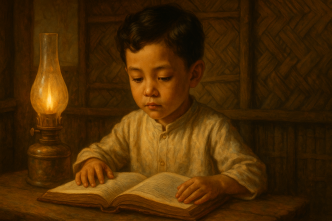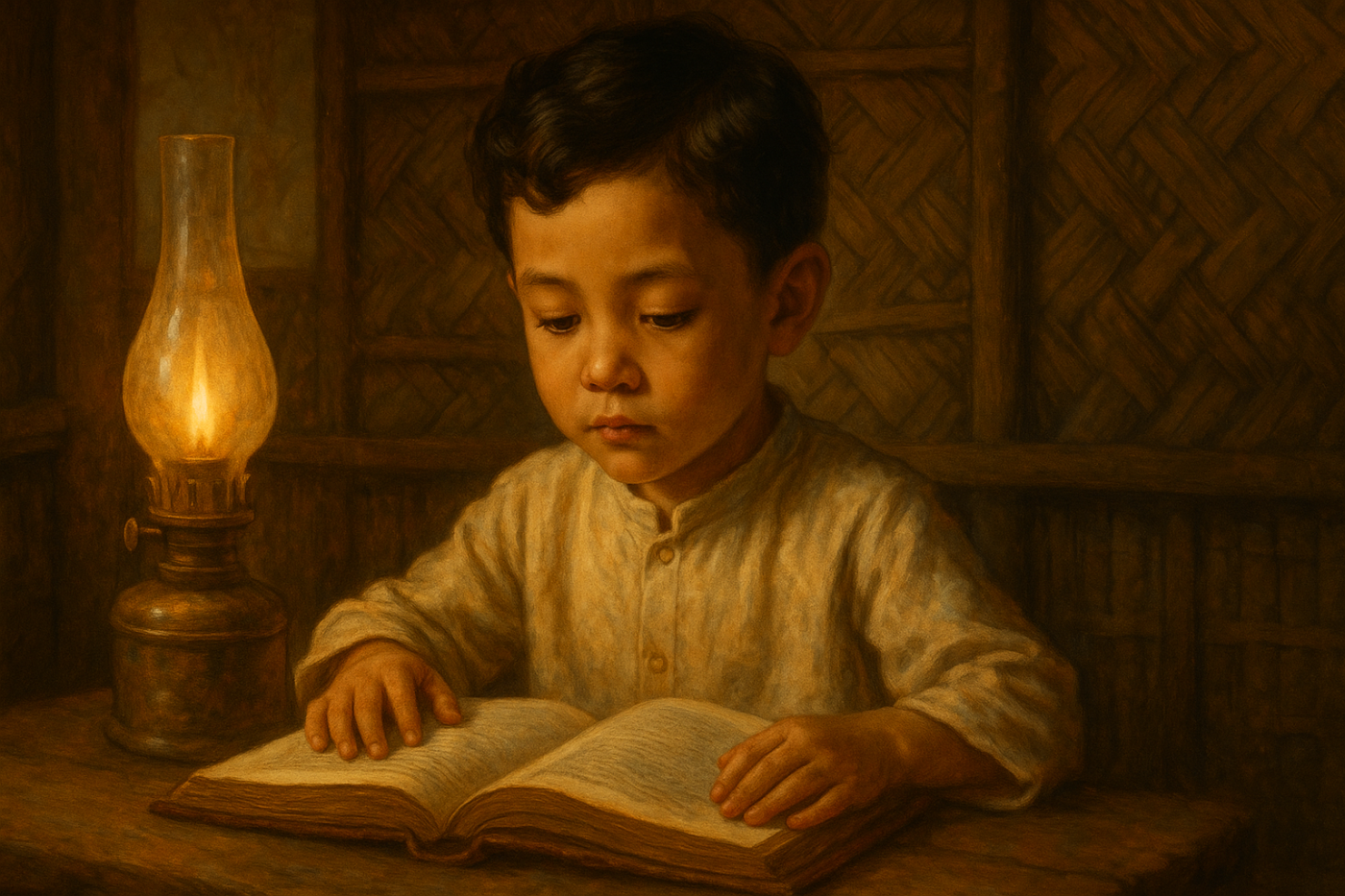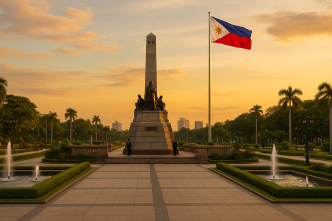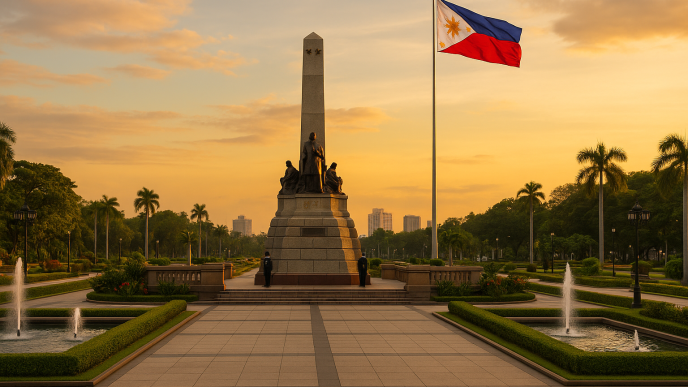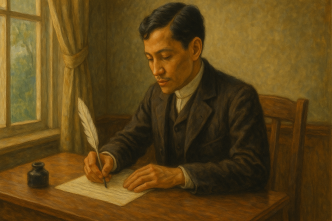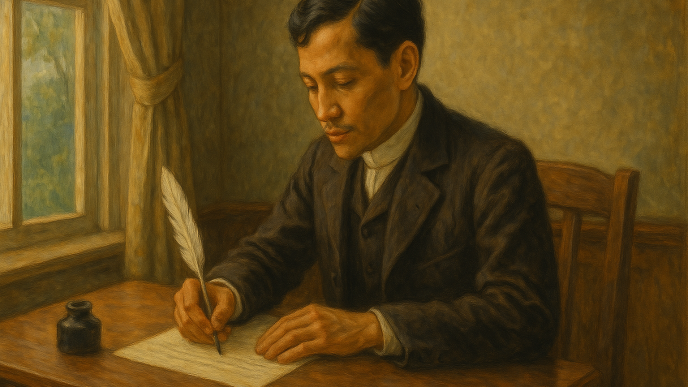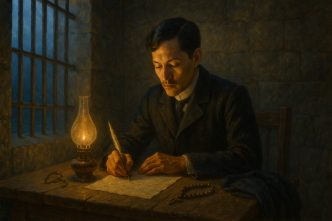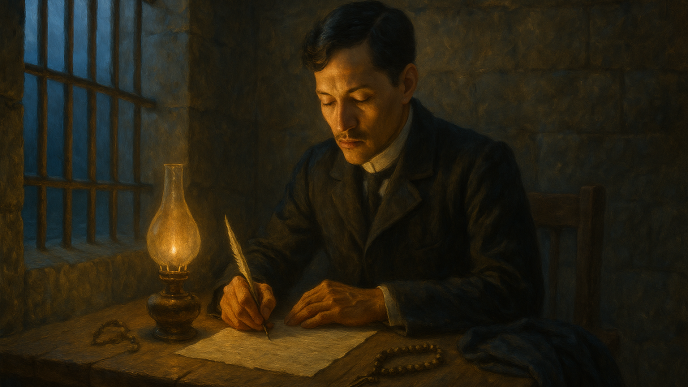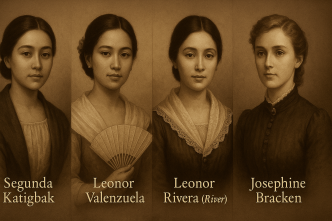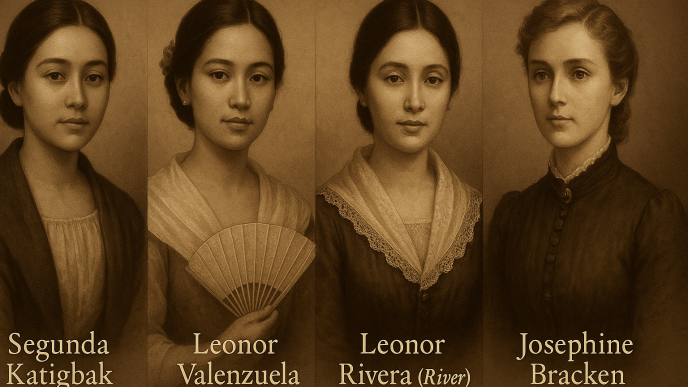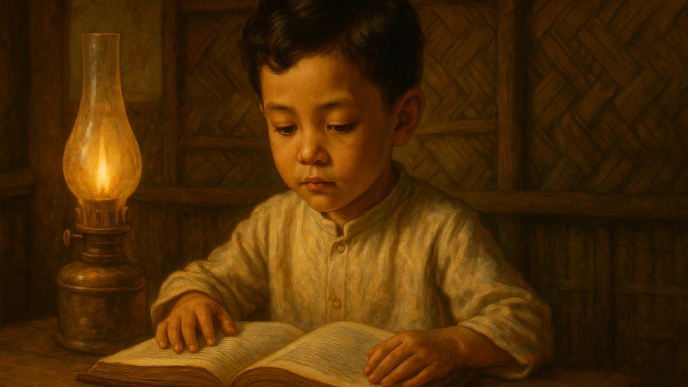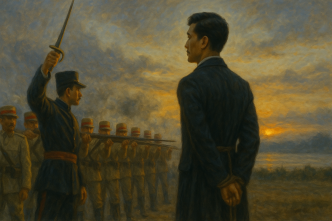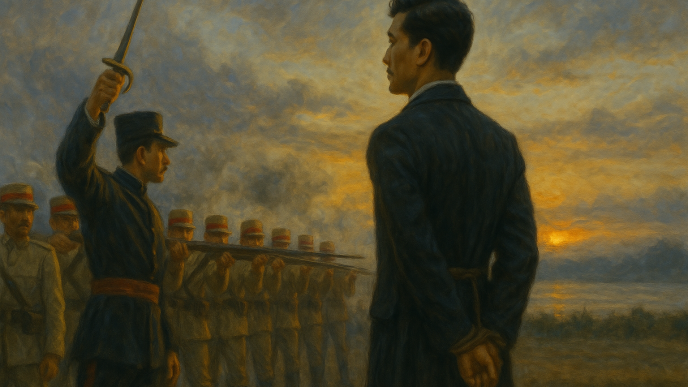QUICK SUMMARY
Jose Rizal’s early life in Calamba provided the foundation for his intellect, character, and patriotism. Raised in a nurturing, well-educated family, he learned discipline, compassion, and a love for learning from his parents, especially his mother. The natural beauty of Calamba and the daily realities of agricultural life shaped his imagination and sharpened his awareness of social injustice. Early exposure to books, community issues, and Paciano’s reformist influences helped form the values that would later define Rizal’s writings and national vision.
Jose Rizal’s early years in Calamba shaped not only his intellect but also the values, memories, and quiet convictions that would define his life as a writer and reformist. Born into a prosperous yet compassionate family, he grew up in an environment where learning, discipline, and love for country were woven into everyday life. Calamba itself, with its broad fields, quiet lake, and thriving agricultural community, provided the backdrop for a childhood that was at once peaceful and deeply formative.
Growing Up in a Nurturing Household
Rizal was born on June 19, 1861, in Calamba, Laguna, the seventh of eleven children of Francisco Mercado and Teodora Alonso. His family was known for its industriousness, education, and moral rectitude. Their home was far more than a household. It was a small world where culture and values were diligently passed from one generation to the next.
His father, Francisco, was a self-made tenant-farmer who managed their lands with fairness and intelligence. He served as a model of integrity, patience, and quiet determination. From him, Rizal learned the importance of hard work and principled living.
His mother, Teodora, was a remarkable woman whose influence on Rizal was profound. Educated, perceptive, and morally firm, she served as his first teacher. She introduced him to reading, literature, and prayer at an early age. Her lessons were not merely academic. She taught him compassion, justice, and the courage to act according to one’s conscience. Much of Rizal’s empathy and moral clarity can be traced to her example.
Calamba as a Living Classroom
Calamba in the 19th century was a town blessed with fertile lands and surrounded by natural beauty. Its fields, lake, and distant mountains made deep impressions on Rizal. These landscapes would later appear in his novels, essays, and poems, evidence of how closely his imagination was tied to his childhood environment.
He grew up observing the rhythm of agricultural life: the planting, harvesting, and the daily exchanges between landowners, tenants, and workers. These interactions gave him early insight into the social inequalities of colonial society. Though he was a child, he began to see the injustices that shadowed the lives of many Filipino families. These observations would eventually evolve into the powerful social critiques found in Noli Me Tángere and El Filibusterismo.
Early Education and Awakening of Talent
Rizal’s early education began at home under his mother’s guidance. She taught him the alphabet, prayers, and readings from storybooks and folk tales. His natural curiosity made him an eager learner, and he quickly developed strong reading and writing skills.
A small school in Calamba later introduced him to formal lessons. Though modest, the school provided structure, discipline, and early exposure to academic life. Rizal also looked up to his older brother, Paciano, who was connected to the reformist circles of Father Burgos. Paciano’s stories and experiences widened Rizal’s worldview and helped cultivate his sense of social responsibility.
Books were the windows through which young Rizal saw the broader world. He read fables, history, and travel works, and he absorbed them with unusual depth. His early exposure to literature strengthened both his imagination and his conviction that ideas could change the human experience.
Influence of Community and Social Realities
Life in Calamba was peaceful, yet it was impossible to ignore the realities of Spanish colonial rule. Rizal witnessed firsthand the disputes between Calamba tenants and the Dominican friars who owned much of the land. Conversations at home often revolved around politics, injustice, and the struggles of ordinary Filipinos.
These early encounters planted seeds of consciousness in Rizal. He began to understand the meaning of oppression, the fragility of rights, and the importance of knowledge in confronting injustice. Even as a child, he felt compelled to observe, reflect, and record what he saw.
Family, Faith, and Character Formation
Faith and moral education were central to his upbringing. His family practiced Catholic devotion with sincerity, not fear. This shaped Rizal’s understanding of spirituality as something rooted in compassion and ethics rather than empty ritual.
Values such as diligence, honesty, respect for elders, and care for the community were constant themes in his home. He grew up in a household where success was measured not by wealth but by character. This foundation would later guide his personal choices, including his preference for reform through education rather than revolution through violence.
Seeds of a Future Reformist
By the time Rizal left Calamba for further studies, much of who he would become had already been formed. His love for learning, his sensitivity to injustice, his artistic and linguistic abilities, and his deep affection for the Philippines were rooted in the experiences and influences of his early life.
Calamba was not just his birthplace. It was the wellspring of his identity and the first source of his patriotism. The town’s beauty, the warmth of his family, the encouragement of his early teachers, and the realities of colonial society combined to shape a young boy who would one day write works that awakened a nation.
